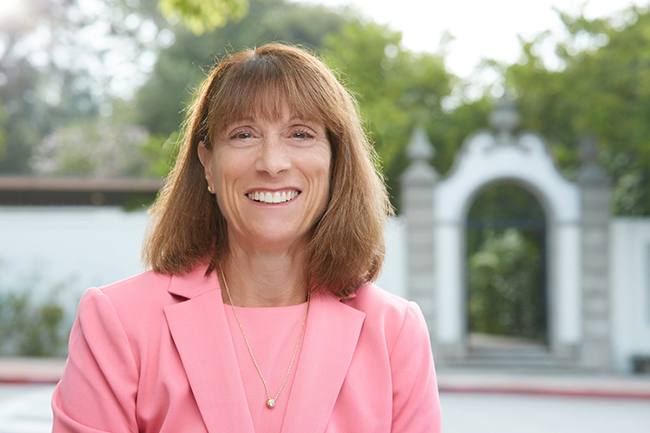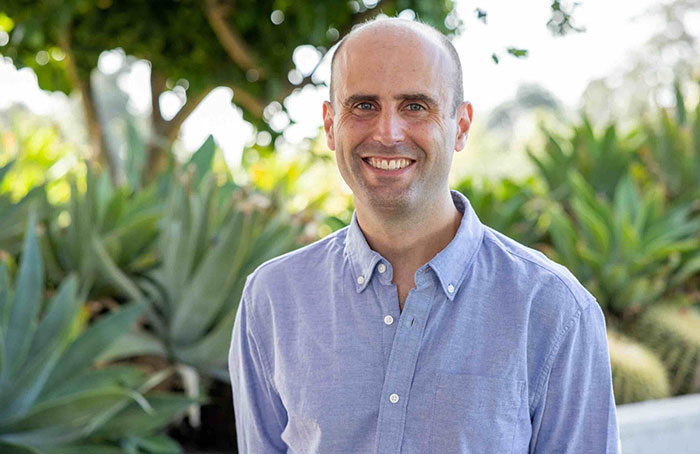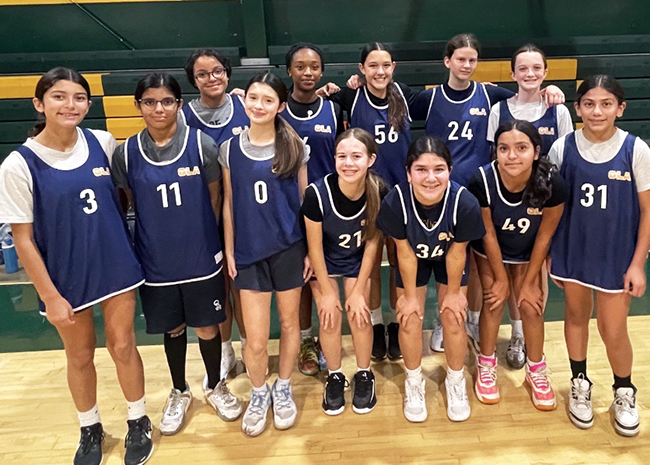Faculty union president discusses school board access, teacher priorities
Claremont High School English teacher Dave Chamberlain just received his 25th request from a junior in need of a recommendation for college applications.
Somehow Mr. Chamberlain, who devotes 25 weekends a year to leading the CHS debate team in a vigorous competition schedule, will find a way to squeeze in the paperwork for his college-bound students.
This year, he is also finding time for another demanding commitment as he takes on the role of president of the Claremont Faculty Association (CFA).
The COURIER recently caught up with Mr. Chamberlain to discuss the union’s latest priorities and his prize-winning debate team, and to discover whether the man who wears so many hats in service of the Claremont Unified School District has time for a personal life.
Mr. Chamberlain—who has been a CUSD teacher for 15 years and has served as union vice president and bargaining chair—said Claremont faculty are feeling “a good amount of satisfaction in the developing relationship between the faculty association and district administration.”
Nonetheless, he emphasized that there’s still a ways to go when it comes to communication between the local teachers’ union and the Claremont school board. It’s a question of access, he said.
Reps from the CFA want the chance to meet occasionally with individual council members, bending their ears with regards to teachers’ concerns. Their requests are routinely declined, with board members citing the Brown Act as the reason for their refusal, Mr. Chamberlain said.
Authored in 1953, the Brown Act was instituted to guarantee the public’s right to be present and to participate in meetings of local legislative agencies. The act prohibits the gathering of a majority of local school board members outside of regularly scheduled and publically-announced meetings.
Considering that the board is only asking to sit down with one board member at a time, 2 at the most, the Claremont board of education is clearly misinterpreting the statute, according to Mr. Chamberlain.
“We should be able to have these conversations and at this point, the board is not willing to do that,” he said.
The previous faculty union president, Joe Tonan, noted that board members regularly make time to meet with administrators from the various school sites, and expressed his wish that they would grant the same courtesy to teachers.
The CFA would also like to have a set time on each school board meeting agenda to share teacher’s concerns, goals and achievements with the board and the community. It is a move many other school districts have made, Mr. Chamberlain noted.
As it stands now, CFA representatives must pull a blue card and limit discussion to the regular public comment period at board meetings. That’s exactly what Mr. Chamberlain did at the last school board meeting on October 4, expounding on another topic of grave concern to Claremont teachers: healthcare.
Teachers face financial challenges
Last year, the district contributed $1825 more than it has in years past toward the healthcare premiums of each CUSD staffer. The temporary boost will continue this year as part of a one-time, 2-year agreement between the district and staff unions, granted to workers to acknowledge years of recession-era austerities.
That $1825 isn’t going very far.
Recently, CUSD’s longtime healthcare trust dissolved after the largest participating school district withdrew from the association. A healthcare trust is a pool of school districts that join together to leverage their benefits buying power. The district had to scramble to find a new health care trust with strong and competitively-priced benefits. While administrators have done their best, healthcare costs have already begun to rise.
Teachers are getting nervous, Mr. Chamberlain said.
It currently costs $395 for a teacher to buy health coverage for themself and their family. Next year, with the expiration of the district’s bonus health contribution, that same teacher’s benefit costs will double to nearly $800.
This looming increase is devastating enough, Mr. Chamberlain said, but there is another Sword of Damoclese hovering over teachers’ heads. If the governor’s tax initiative, Proposition 30, does not pass, teachers will face as many as 10 to 14 furlough days and ensuing cut in pay.
The district’s contribution to employee benefits has only risen by a quarter of a percent per year for the last 20 years, while the cost of benefits has risen some 12-14 percent annually. Mr. Tonan emphasized how precipitous that hike has been in recent years, considering that in 2008, the most any CUSD employee had to pay for health insurance was $30.
Teachers are gradually losing financial ground and more CUSD instructors are being forced to take on additional part-time jobs to make ends meet, according to Mr. Chamberlain. With this in mind, the CFA is urging the district to make a meaningful and permanent increase in its contribution to employee health benefits.
While there are some issues between the faculty union and the Claremont school board, Mr. Chamberlain said he has observed many promising developments. For instance, his first impressions of new CUSD Superintendent Jim Elsasser have been positive.
“His heart seems to be in the right place,” Mr. Chamberlain said. “I like that he comes from a human resources background and he has a positive sense of how to treat people.”
Mr. Chamberlain also saluted board members for their vote at the last school board meeting to unanimously support Governor Jerry Brown’s tax initiative, Prop 30.
“I think they realize that without a guaranteed level of funding, we’re going to experience some very severe cuts that will not only hurt teachers but will hurt children in the community,” Mr. Chamberlain said.
There’s always time for fishing
Mr. Tonan said that the job of faculty union president is quite time-consuming. Mr. Chamberlain will need to attend union gatherings and represent the union at all district meetings. He will also need to meet with countless individual faculty members in need of CFA support.
Mr. Chamberlain was well aware of the level of effort required from the faculty union head, so he had to think a while after Mr. Tonan suggested he run for CFA president. After 2 weeks of consideration, he went for it. If Mr. Chamberlain’s plate seems a little full, keep in mind that he’s always been a joiner. Growing up in Chino, he served as editor of his school newspaper and ASB president at Don Lugo High School. Right after graduating, he ran twice for a seat on the Chino school board.
“I was that guy,” he joked.
The CHS speech and debate team was recently ranked among the top 99.5 percent of speech and debate programs in the country by the National Forensics League. Given the program’s success, it’s somewhat surprising that Mr. Chamberlain didn’t major in debate in college. And his high school didn’t even have a speech and debate team while he was there.
Mr. Chamberlain double-majored in political science and English at Pitzer College, and earned his teaching credential from Cal State San Bernardino. When he joined the staff at Claremont High School and learned that the debate team needed an advisor, he agreed to fill the bill on the condition that the students would teach him what he needed to know. The result is a student-centered program, in which veteran student debaters mentor new members.
When he took the reins of CHS Public Debate, there were 20 students in the program, who participated in 3 or 4 tournaments over the course of a year. There are now 80 kids involved, with tournaments taking place nearly every other week.
Mr. Chamberlain is as enthusiastic about debate as he is self-taught, and said he enjoys helping young people cultivate the ability to express themselves. In fact, he has seen his own confidence in public speaking grow by leaps and bounds since taking on the debate coach post.
His schedule has grown as well, but Mr. Chamberlain still tries to devote some of his downtime to his favorite pursuits. As often as possible, he goes fishing, whether he’s on a deep sea excursion, looking for bass or angling for trout in the Sierras. Mr. Chamberlain also enjoys spending as much time as possible spoiling his nieces and nephews.
“It’s a challenge to balance all of my responsibilities,” Mr. Chamberlain admits. “I’ve also found it very rewarding.”
—Sarah Torribio
storribio@claremont-courier.com







0 Comments